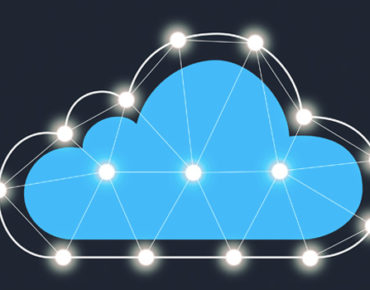IoT, Containers Seen Accelerating Hybrid Cloud Push

Source: Intel
The steady, seemingly inexorable, shift to enterprise hybrid cloud infrastructure is being driven by factors ranging from the disaggregation of storage from computing resources in the datacenter to the emergence of new network topologies and constructs such as the Internet of Things (IoT), observers say.
The shift to hybrid cloud platforms also is being hastened by maturing application container technology as security concerns are addressed and new requirements surface. Those include persistent storage in the datacenter as more cloud-native applications are delivered via lightweight containers.
Vendors such as Equinix (NASDAQ: EQIX) working at the nexus of carrier-neutral datacenter services and networking argue that an emerging IoT will look a cloud with disaggregated storage and computing along with container access to distributed applications. Networks of connected things enabled by application containers are hastening the adoption of hybrid clouds, Equinix CTO Ihab Tarazi noted in an interview this week.
"We know it's the next wave," Tarazi asserted.
For datacenter service providers like Equinix, the current sweet spot is helping customers build data hubs inside its facilities to connect to the cloud. With the rise of containers in datacenters, persistent storage, according to some observers, has overtaken security as the top concern.
As the shift to hybrid gains momentum, Tarazi not surprisingly predicts that datacenters will supply the persistent storage and cloud connections as more enterprises access distributed applications and other functionality via containers. Datacenter customers will increasingly rely on persistent storage to boost performance and reduce costs while keeping mission critical data on-premises.
Big datacenter providers such as Equinix are meanwhile betting that early IoT applications based on low-cost, low-power devices running on emerging 5G and 3GPP networks as well as unlicensed spectrum will eventually be supported from its datacenters. With industrial IoT applications widely seen as emerging first, analysts are predicting that enterprise and even public sector adoption of connected device technology is moving closer to reality. For example, market watcher Garter included IoT on its list of emerging technologies for the government sector.
"Government business models are emerging that take advantage of the IoT," Gartner asserted in a survey released this week. Meanwhile, datacenter providers like Equinix are exploring IoT requirements for applications like smart cities.
Despite the promise of IoT as network capabilities expand and container technology leverages cloud agility, critics note that key challenges must still be surmounted. Among them are non-trivial tasks like managing perhaps billions of IoT devices once they are deployed. While IoT promoters like Equinix argue that emerging network capabilities will provide more functionality at the "cloud edge," others are leveraging containers to address issues like deploying and managing software for IoT devices.
IoT startup Resin.io, which announced a $9 million funding round this week, told EE Times it is focusing on how to deploy, update and manage code in IoT devices.
Hence, the maturity of application containers, the rise of new network capabilities connecting cheap, low-power devices along with growing momentum to transform IoT from a buzz phrase to a reality are prompting more enterprises to embrace hybrid clouds. Despite the complexity and lots of moving parts, Tarazi of Equinix concluded, "I haven't had this much fun in a long time.
Related
George Leopold has written about science and technology for more than 30 years, focusing on electronics and aerospace technology. He previously served as executive editor of Electronic Engineering Times. Leopold is the author of "Calculated Risk: The Supersonic Life and Times of Gus Grissom" (Purdue University Press, 2016).










